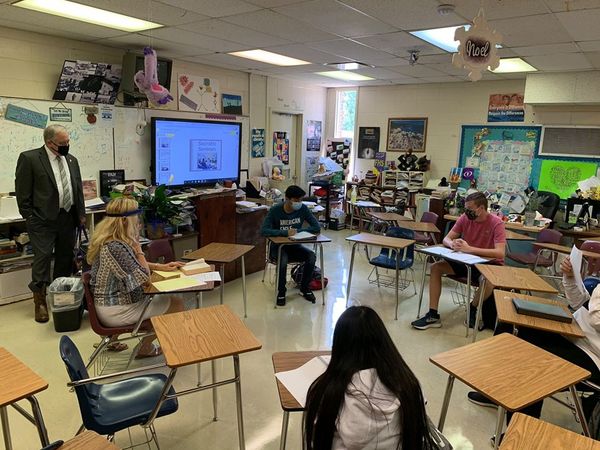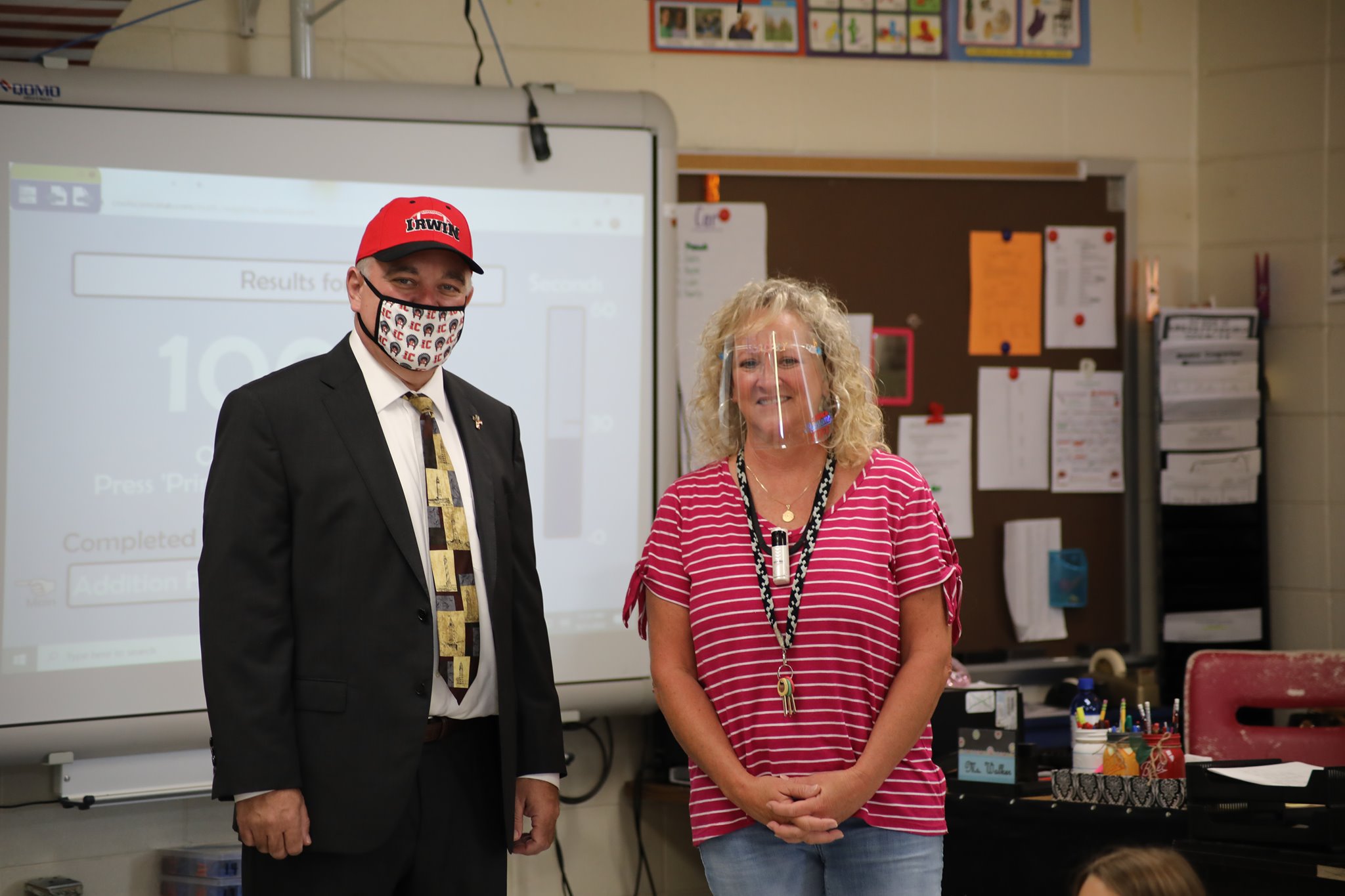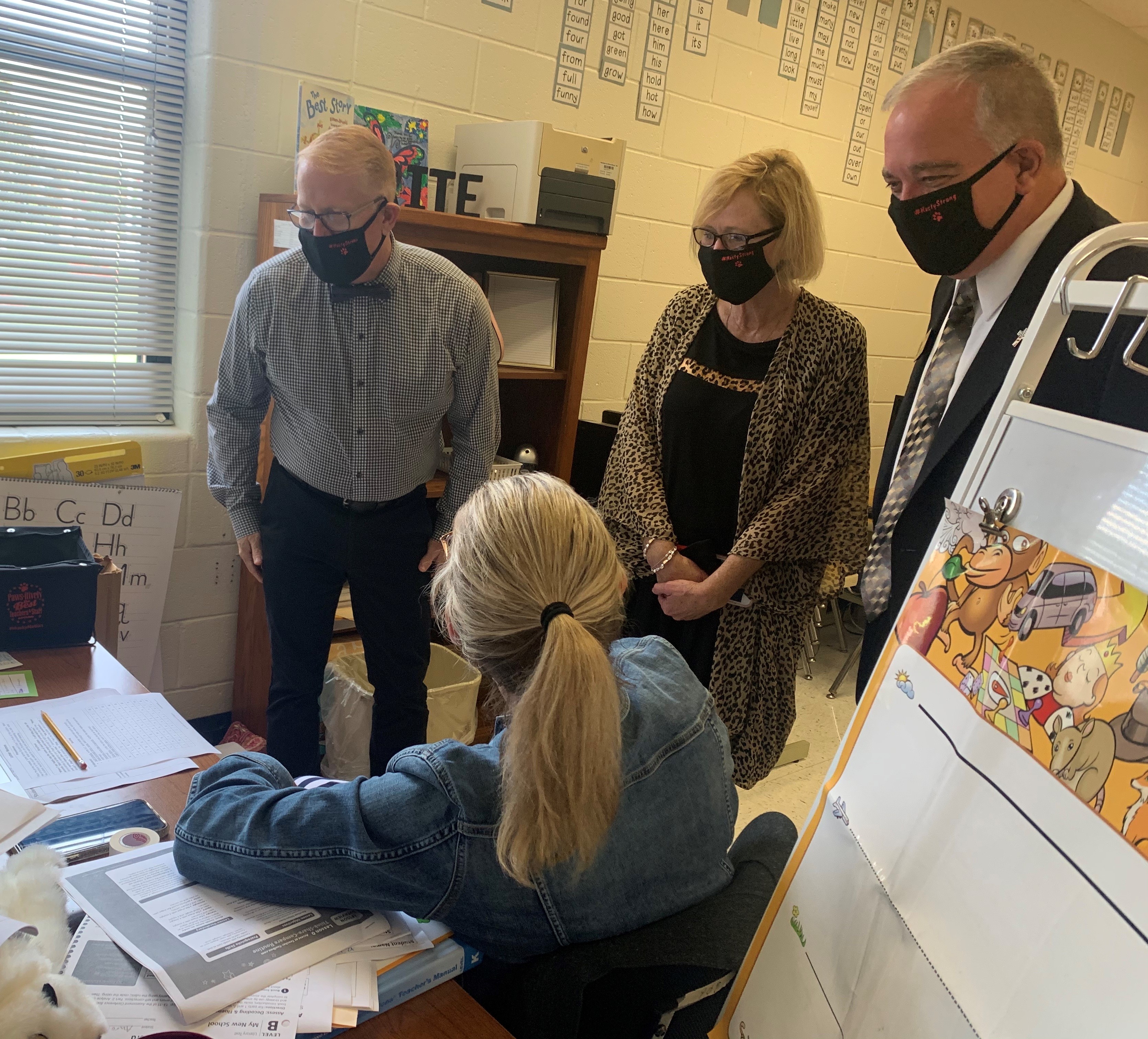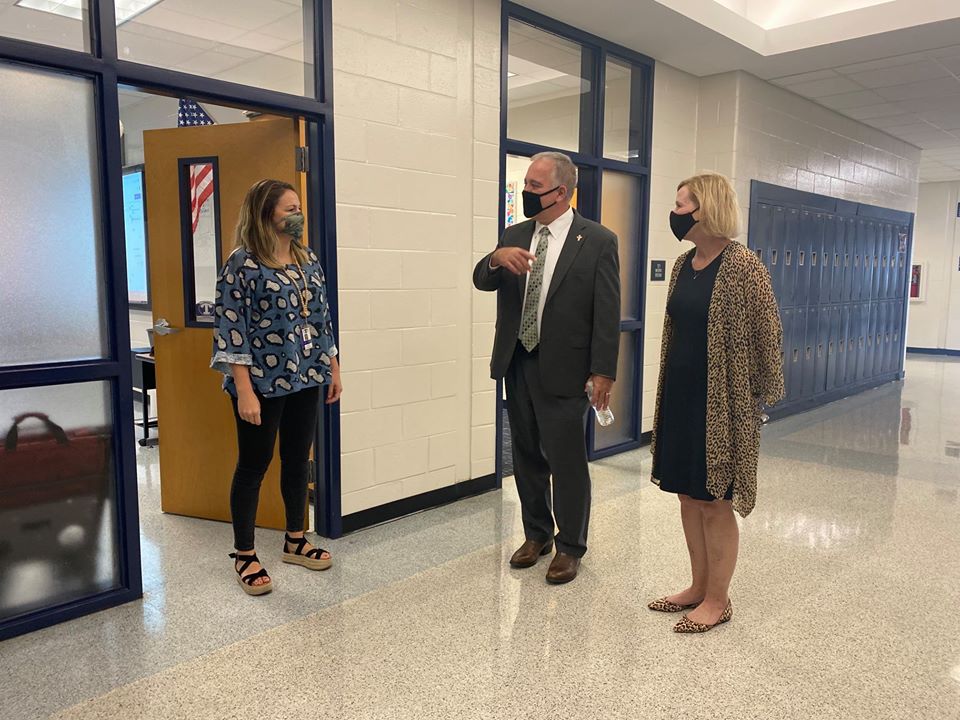
Over the last several weeks, I’ve spent time in schools and classrooms across our state. I’ve had the opportunity to witness both in-person and virtual instruction, from Metro Atlanta to rural Georgia.
Of course, every school I visited was different. They served different communities, faced different challenges, and the resources available to them varied.
One thing was common in every school I visited: they were going above and beyond to keep students safe. The teachers in front of those students – whether virtually or in-person – had their best interests at heart, without exception. Educators’ acts of care, creativity, and extra attention may not always make the news, but they are happening.
To offer a few examples:
In Wilcox County, a rural county in Middle Georgia, teachers and leaders have constructed simple vinyl barriers to facilitate social distancing, and school leaders are working hand-in-hand with their sister governmental entities – from City Hall to the public library system – to ensure families are connected to the internet.
In Irwin County, where I was a teacher and administrator for many years, protocols in place to ensure students’ safety include a mask requirement for students and staff through the school dress code, daily temperature screenings, and the construction of clear dividers for mealtimes. At Fitzgerald High School, my alma mater, leaders have implemented a mask requirement and are distancing students in classrooms – assisted by a strong virtual learning option for students and families who choose it.

Superintendent Woods meets with Jennifer Walker, a teacher at Irwin County Elementary School, and congratulates her on 30 years in the classroom.
At schools I visited in Polk and Cherokee counties, leaders are implementing precautions such as in-classroom meals, creative hallway transitions to prevent close contact, social distancing in classrooms, and assigned seats for classes, meals, and school buses.

Superintendent Woods; his wife, Lisha Woods; and Cherokee County Schools Superintendent Brian Hightower
visit a classroom at Hasty Elementary School.
In my home of Tift County, there is a strong emphasis on interactions between virtual-learning students and their classmates and teachers. Students who have opted for remote learning are joining in-person class discussions through Google Classroom, and all lessons are recorded during the day. Think of a student who may have younger siblings and need help to care for them during the day – the option to come back and revisit the class in the evening has been helpful for students who need that flexibility.
At Fannin County High, school leaders described a high level of community buy in; parents are doing excellent job keeping students with potential COVID-19 symptoms at home. Any individual entering the building receives a temperature check.
Union County High School has worked on new patterns for foot traffic during the school day to prevent unnecessary close contact, and the school nursing staff has created strong protocols to respond to suspected COVID-19 cases. At Tate Elementary School, in Pickens County, leaders have put extensive work into safe food distribution.

Superintendent Woods and his wife, Lisha Woods, speak with a teacher in Tift County Schools.
In Gilmer County, at Ellijay Elementary School, I joined school leaders at the end of the day for student pickup. On school buses, students were seated by family group; car riders waited for pickup in the auditorium to allow for social distancing.
These may seem like everyday examples – and they are. It has always been common practice in Georgia’s public schools to work hard to ensure student safety, and it has quickly become common practice to take all possible precautions to protect students, families, and communities from COVID-19.
To be clear – my focus on these positive examples should not be construed to mean the negative does not exist. Georgia’s reopening has not been perfect. No state’s reopening will be – no one has ever dealt with this virus before, and there is no foolproof playbook for safeguarding students’ health while ensuring they still have opportunities to learn and grow.
Both the state Department of Education and local school districts are public, taxpayer-funded entities that exist to serve the public. While I know schools and districts feel the weight of increased scrutiny at this moment, we should all view critiques – whether from the media or the parents and communities we serve – not as attacks, but as opportunities to grow and refine our efforts.
I’ve continued to spend time visiting schools because I want to speak with leaders, teachers, and students about their reopening efforts and observe best practices I can share with other schools throughout the state. I also visit because, as I have said before, I would never ask a teacher to enter a classroom I would not enter myself. I believe it’s my job to be on the ground, in these schools. And what I have witnessed on the ground is unprecedented collaboration and creativity, careful planning, flexibility, and teachers bringing all their skill and professionalism to the fore to keep students safe and keep them learning. Districts are working hard to implement the state guidance and keep students and staff safe.
I ask that Georgians continue to hold us accountable, that they speak up and express their concerns. But I also ask that they extend grace to each other. It is always more productive if we – educators, parents, students, community members – build trust with each other and work together in good faith.
I am keenly aware of the challenges we are all facing, and I will not be the final judge of this school year and whether it was a success – students, parents, families, and communities will be.
But I am confident in our ability, as Georgians, to meet this moment together. If we work together – if we pull together, as partners committed to public education – we can make this year a success for the children of our state.


Chattooga Opinions
The Joy of The Journey: Born to Die

Chattooga Schools
Trion Student Stars in Mary Poppins

Bulloch Public Safety
12/20/2024 Booking Report for Bulloch County

Chattooga Local News
Atrium Health Floyd Raises Minimum Wage for Teammates

Bulloch Public Safety
11/25/2024 Booking Report for Bulloch County

Bulloch Public Safety
12/09/2024 Booking Report for Bulloch County

Bulloch Public Safety
12/02/2024 Booking Report for Bulloch County

Bulloch Public Safety
12/16/2024 Booking Report for Bulloch County

Bulloch Public Safety
12/12/2024 Booking Report for Bulloch County




